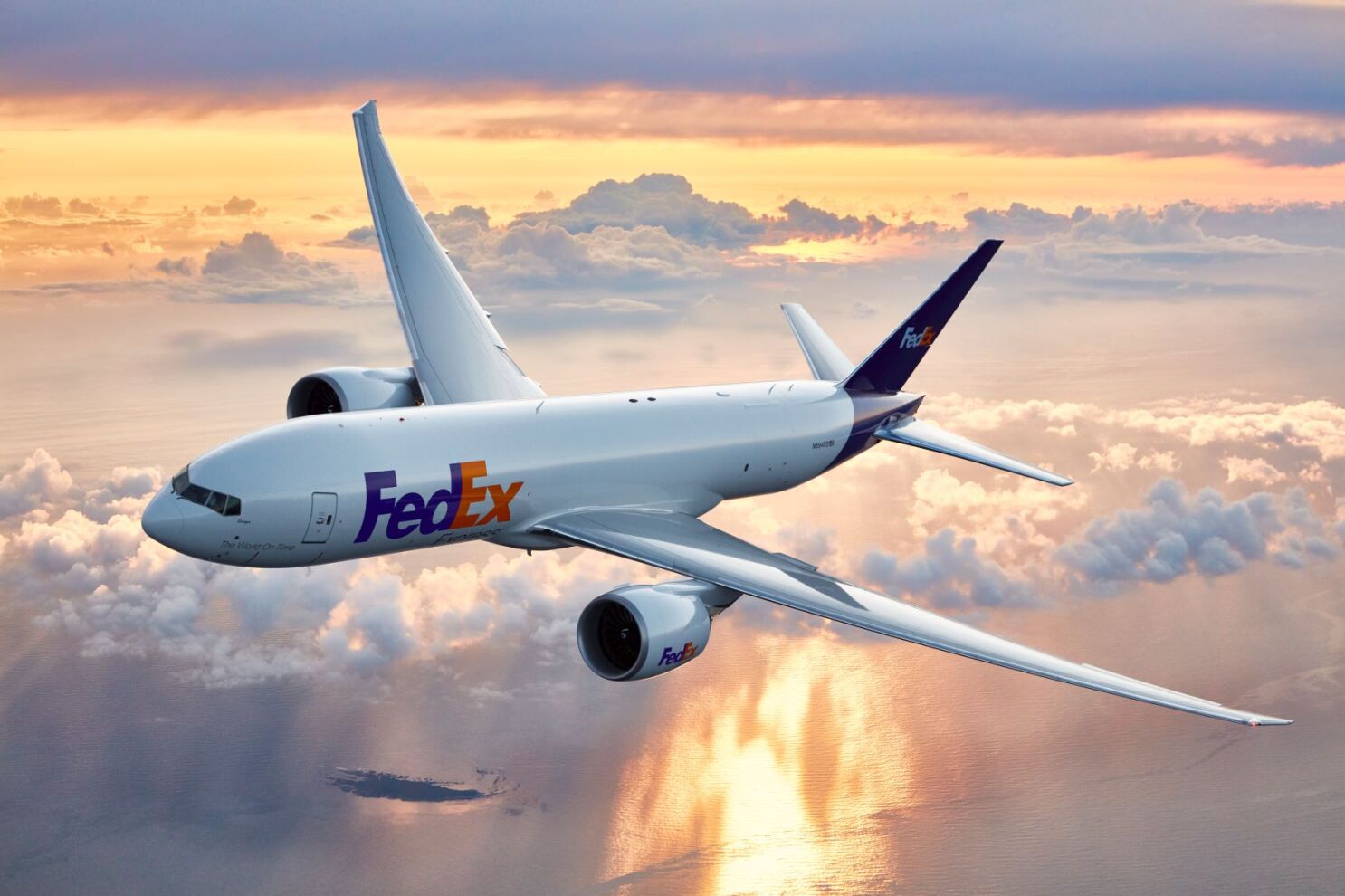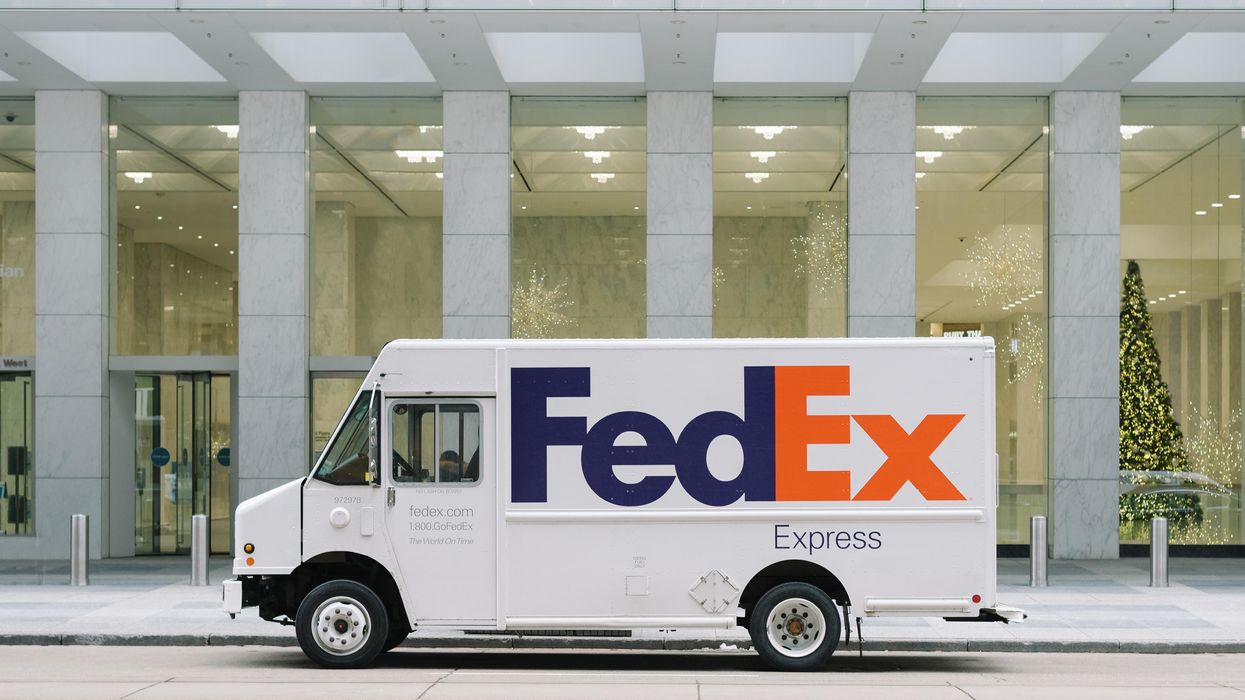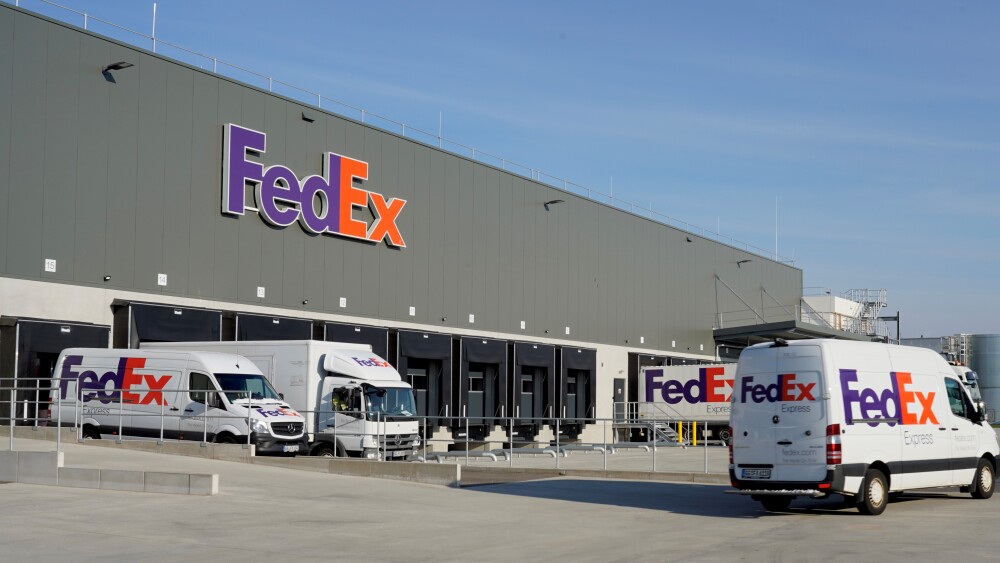FedEx: Revolutionizing Global Logistics Through Innovation
Introduction: In the realm of global commerce, efficient logistics play a pivotal role in driving economic growth and facilitating international trade. Among the trailblazers in this domain, FedEx Corporation stands out as a paragon of innovation and reliability. Since its inception in 1971, FedEx has transformed the landscape of logistics, pioneering groundbreaking solutions and redefining industry standards. This essay delves into the evolution of FedEx, elucidating its key innovations, operational strategies, and the profound impact it has had on global supply chains.
In the realm of global commerce, efficient logistics play a pivotal role in driving economic growth and facilitating international trade. Among the trailblazers in this domain, FedEx Corporation stands out as a paragon of innovation and reliability. Since its inception in 1971, FedEx has transformed the landscape of logistics, pioneering groundbreaking solutions and redefining industry standards. This essay delves into the evolution of FedEx, elucidating its key innovations, operational strategies, and the profound impact it has had on global supply chains.
Foundational Years and Innovative Beginnings:
FedEx traces its origins to an ambitious vision conceived by Frederick W. Smith, who recognized the inefficiencies plaguing traditional airfreight systems. In a seminal paper while studying at Yale University, Smith proposed the concept of an integrated airfreight system, envisioning a company that could deliver packages overnight. This concept laid the groundwork for the birth of Federal Express, later rebranded as FedEx.
In 1973, FedEx commenced operations with a fleet of 14 Dassault Falcon jets, offering an overnight delivery service between 25 cities in the United States. The introduction of the pioneering "hub-and-spoke" model revolutionized logistics, optimizing sorting and distribution processes to achieve unprecedented speed and efficiency. This innovative approach entailed establishing central hubs for sorting packages, enabling seamless connections between different locations, and minimizing transit times.
Technological Advancements and Operational Excellence:
A cornerstone of FedEx's success lies in its relentless pursuit of technological innovation. From the early adoption of computerized package tracking systems to the deployment of advanced route optimization algorithms, technology has been ingrained in every facet of FedEx's operations. The implementation of barcode scanning technology in the 1980s represented a paradigm shift, allowing real-time tracking and tracing of packages throughout the delivery process.
The advent of the internet era saw FedEx embracing e-commerce and digital platforms to enhance customer experiences further. The launch of FedEx.com empowered customers with unprecedented visibility and control over their shipments, enabling online tracking, scheduling deliveries, and accessing a myriad of self-service options. Moreover, FedEx leveraged data analytics and predictive modeling to anticipate demand fluctuations, optimize fleet utilization, and enhance operational resilience.
Global Expansion and Diversification:
As global trade surged in the late 20th century, FedEx embarked on an ambitious expansion strategy to establish a ubiquitous presence across key international markets. The acquisition of Flying Tiger Line in 1989 facilitated FedEx's foray into the Asian market, augmenting its cargo capacity and bolstering its global network. Subsequent acquisitions, including Caliber System Inc. and Kinko's, diversified FedEx's service portfolio, encompassing freight forwarding, document management, and retail services.
FedEx's international footprint continued to expand with strategic investments in infrastructure and partnerships. The establishment of regional hubs in Europe and Asia-Pacific, coupled with alliances with local carriers, enabled FedEx to provide comprehensive coverage and expedited delivery services worldwide. Moreover, the company's commitment to sustainability manifested in initiatives such as the introduction of fuel-efficient aircraft and eco-friendly packaging solutions, underscoring its dedication to environmental stewardship.
Innovations Amidst Challenges::max_bytes(150000):strip_icc()/GettyImages-1500109590-a759bd9a2f6d400abfb605c7277d193a.jpg)
The dawn of the 21st century ushered in a new era of challenges and opportunities for FedEx. The aftermath of the September 11 terrorist attacks necessitated stringent security measures and reshaped the dynamics of global aviation. In response, FedEx fortified its security protocols, implemented advanced screening technologies, and collaborated closely with regulatory agencies to ensure the integrity and safety of its operations.
The proliferation of e-commerce and the rise of digital disruptors posed formidable challenges to traditional logistics players. However, FedEx embraced these shifts as catalysts for innovation, leveraging emerging technologies such as artificial intelligence, robotics, and autonomous vehicles to enhance efficiency and competitiveness. The deployment of delivery robots and drones for last-mile logistics exemplifies FedEx's commitment to embracing cutting-edge solutions and adapting to evolving consumer preferences.
FedEx's journey from a fledgling startup to a global logistics behemoth epitomizes the transformative power of innovation and perseverance. Through visionary leadership, technological prowess, and a relentless focus on customer-centricity, FedEx has redefined the boundaries of what is possible in the realm of logistics. As the pace of globalization accelerates and supply chains become increasingly complex, FedEx remains steadfast in its commitment to driving positive change and shaping the future of global commerce.
Amidst the dynamic landscape of global commerce, FedEx continues to chart a course of innovation and adaptation, navigating through challenges and seizing opportunities with agility and foresight. Looking ahead, several key trends are poised to shape the future trajectory of the logistics industry, and FedEx is well-positioned to capitalize on these developments. Firstly, the exponential growth of e-commerce is expected to be a major driver of demand for logistics services. With consumers increasingly gravitating towards online shopping, the volume of parcel shipments is projected to soar, necessitating scalable and efficient delivery solutions. FedEx's investments in automation, digitalization, and last-mile delivery technologies position it as a frontrunner in meeting the evolving needs of e-commerce retailers and consumers alike.
Firstly, the exponential growth of e-commerce is expected to be a major driver of demand for logistics services. With consumers increasingly gravitating towards online shopping, the volume of parcel shipments is projected to soar, necessitating scalable and efficient delivery solutions. FedEx's investments in automation, digitalization, and last-mile delivery technologies position it as a frontrunner in meeting the evolving needs of e-commerce retailers and consumers alike.
Secondly, sustainability has emerged as a pressing concern within the logistics sector, driven by growing environmental awareness and regulatory pressures. As stakeholders demand greener and more sustainable supply chain practices, FedEx's commitment to sustainability serves as a strategic differentiator. By leveraging alternative fuels, optimizing transportation routes, and implementing eco-friendly packaging solutions, FedEx is not only reducing its carbon footprint but also enhancing its brand reputation and appeal to environmentally conscious customers. Furthermore, the advent of disruptive technologies such as blockchain, Internet of Things (IoT), and machine learning promises to revolutionize supply chain management and logistics operations. FedEx's proactive embrace of emerging technologies positions it at the forefront of innovation, enabling greater visibility, transparency, and efficiency throughout the supply chain. From blockchain-powered smart contracts to IoT-enabled asset tracking, FedEx continues to explore new frontiers of technological innovation to drive operational excellence and customer value.
Furthermore, the advent of disruptive technologies such as blockchain, Internet of Things (IoT), and machine learning promises to revolutionize supply chain management and logistics operations. FedEx's proactive embrace of emerging technologies positions it at the forefront of innovation, enabling greater visibility, transparency, and efficiency throughout the supply chain. From blockchain-powered smart contracts to IoT-enabled asset tracking, FedEx continues to explore new frontiers of technological innovation to drive operational excellence and customer value.
In the realm of global trade, geopolitical uncertainties and trade disruptions underscore the importance of resilience and adaptability in logistics networks. FedEx's diversified portfolio of services, extensive global network, and robust risk management practices equip it with the flexibility and resilience to navigate through turbulent times and mitigate supply chain disruptions. By fostering strategic partnerships, diversifying transportation modes, and optimizing inventory management, FedEx enhances its ability to respond swiftly to changing market dynamics and geopolitical shifts.
In conclusion, FedEx's journey from a humble startup to a global logistics powerhouse is a testament to the transformative power of innovation, resilience, and customer-centricity. As the logistics industry undergoes unprecedented transformation, FedEx stands poised to lead the charge, driving positive change and shaping the future of global commerce. With a legacy of innovation, a commitment to excellence, and a relentless pursuit of customer value, FedEx remains steadfast in its mission to connect the world and deliver possibilities.





































![[ℕ𝕖𝕧𝕖𝕣] 𝕊𝕖𝕝𝕝 𝕐𝕠𝕦𝕣 𝔹𝕚𝕥𝕔𝕠𝕚𝕟 - And Now What.... Pray To The God Of Hopium?](https://cdn.bulbapp.io/frontend/images/79e7827b-c644-4853-b048-a9601a8a8da7/1)








